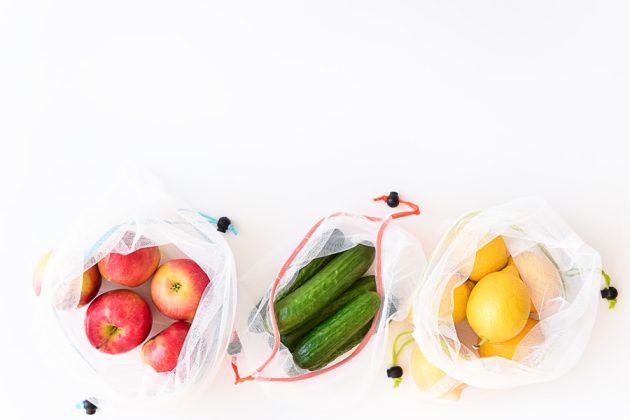
Sustainable Change: A circle in a box – upcycling your dinner
By Cher Mereweather
Sustainability Provision Coalition RePurpose Incubator Upcycled food Upcycled Food Festival Photo © Julia / Adobe Stock
Photo © Julia / Adobe Stock Almost all of the food and beverage companies in Canada are small and medium-sized businesses; over 90 per cent, in fact. These companies—as I’m sure you know if you work in one—are (for the most part) lean, tight ships.
Food is not software. We don’t have 50 per cent margins, funky furniture, smoothie-makers in the lobby or hipster R&D teams floating around wondering what to work on next.
On the contrary, our industry is hyper-focused on the product, the customer and doing one thing really well to stay ahead of the competition and stay alive.
Byproducts
A lot of the food and beverage we make creates byproducts: spent grains from brewing, whey from dairy, vegetable peels, corn husks and so on.
These byproducts must be disposed. They are at best seen as a distraction. Most choose to send these byproducts to compost or animal feed, sometimes energy production, and in the worst-case scenario, the landfill. All of these options are problematic.
Rather than being a distraction, these byproducts could be an opportunity to create new revenue streams and, potentially, reduce operating costs. However, it’s an opportunity that our industry, on the whole, simply doesn’t have the bandwidth to realize.
In all of my years in this industry, I’m yet to meet a CEO of a food or beverage company, large or small, who didn’t want to do more good if it could make their firm more money. What I do hear, again and again, is that these same CEOs, who are aware of the opportunity in their byproducts, simply don’t have the staff, time, skill sets, network or the money to do anything about it. There’s always a machine that needs fixing first, or a new hire who needs to be trained. I get it, but as an industry, we need to do better.
Global warming
The IPCC report released in August confirmed global warming is progressing at an alarming rate, the food system is responsible for a third of all greenhouse gas emissions, and that food waste is one of the biggest contributors to those emissions.
We simply cannot continue to throw away over 35.5 million metric tonnes of food in Canada every year.
My team and I have wrestled with this problem for several years. What can we do to make it possible for the leadership of the small and medium-sized companies that make up over 90 per cent of our Canadian food industry to realize the opportunity these byproducts offer? What can we do to help reduce the emissions connected to those byproducts, by keeping them in the human food system for longer? How can we do this in a way that is affordable for an industry operating on paper-thin margins?
RePurpose Incubator
I’m proud to announce we have squared this circle with the launch of the RePurpose Incubator. This incubator will bring together all of the skills, resources, tools, people and knowledge necessary to create a new revenue stream with a byproduct.
It will help you to analyze your byproduct and determine the highest value you could get for it, tell you who would buy it, what they would use it for and how you should package and market it. It will even connect you to potential buyers and support you with commercialization.
Under one (virtual) roof, the RePurpose Incubator will bring together academics, food scientists, marketing and sustainability experts, product developers and industry connectors.
Thanks to investment from government and industry partners, it will be available in a way that is both affordable and accessible.
Canadian Upcycled Food Festival
There is one other piece to this puzzle, though. Realizing the opportunity of byproducts also requires consumer demand. Without that, there is no value chain. Therefore, this October, in partnership with a whole host of partners, we launched the first ever Canadian Upcycled Food Festival.
Throughout October, dozens of chefs and restaurants across the Greater Toronto Area featured on their menus special dishes created solely from upcycled products and ingredients (i.e. byproducts from food and beverage processing).
Recent winners of the food reality show, Canadian MasterChef, showcased the incredible potential of upcycled food. Sobey’s retailed the first ever upcycled meal kit, a ramen noodle bowl for two made entirely from ingredients that would have been thrown away.
You can apply now to join the RePurpose Incubator. Visit www.harvestimpact.smapply.io/prog/repurposeincubator.
Together, let’s show the world that while we may not have the margins and funky furniture of other industries, we more than make up for it with our creativity, resilience and determination to make food/drink that makes a great impact on people and planet.
Cher Mereweather, CEO of Provision Coalition, Inc., is a Canadian-based food industry sustainability expert.
This article was originally published in the October 2021 issue of Food in Canada.
Print this page